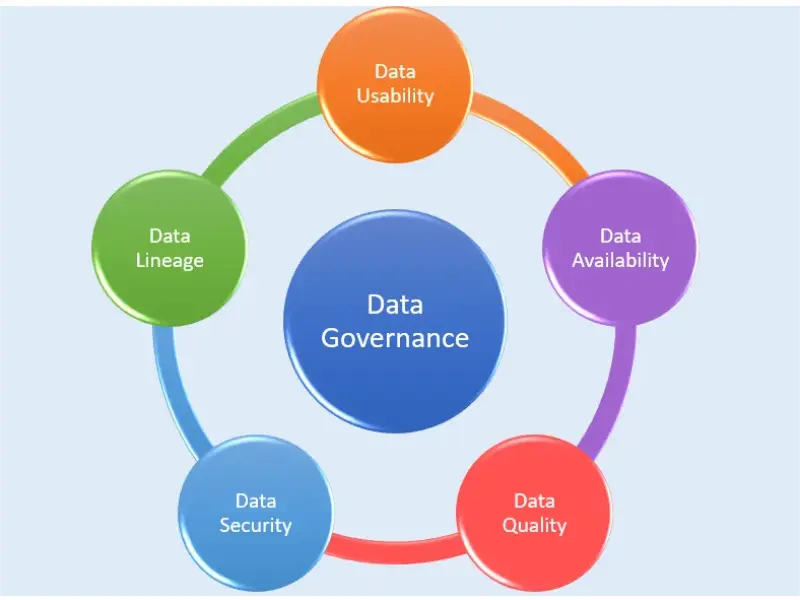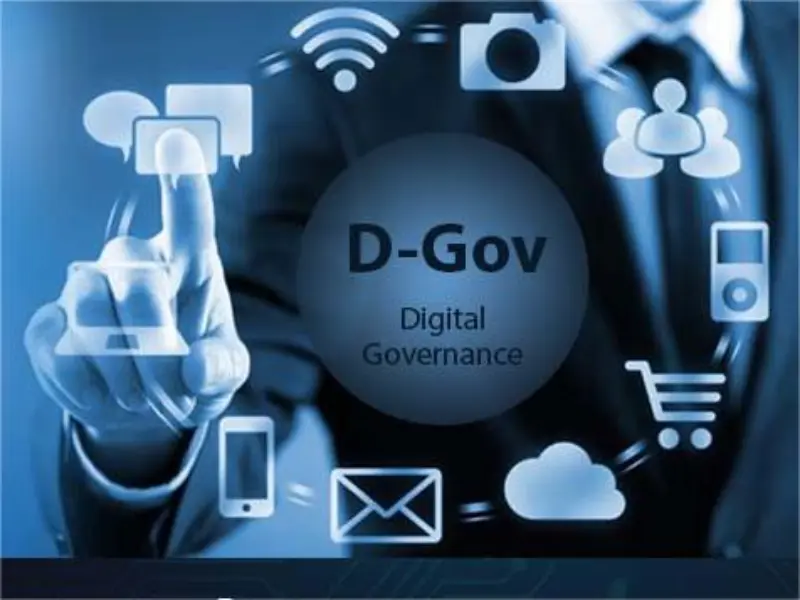- Digital governance is a set of policies, processes and regulations that guide and control the use of digital technology in an organisation or society. It is an organic integration of digital technology and governance.
- Digital governance is a highly inclusive concept, covering data governance, IT governance, digital government, digital economy governance, social media governance and other aspects.
- Every federal agency should have an enterprise-wide governance structure that provides both high-level strategic direction and oversight, as well as day-to-day management and coordination of digital initiatives.
Digital governance is a concept that understands the country’s adoption of digital transformation and effective social governance in the context of ever-changing technological developments. Here’s what you need to know about digital governance.
What is digital governance?
Digital governance is a set of policies, processes and regulations that guide and control the use of digital technology in an organisation or society. It is an organic integration of digital technology and governance.
The core feature of digital governance is the data interoperability of the whole society, comprehensive digital collaboration and cross-departmental process reengineering, forming a governance mechanism that “speaks with data, makes decisions with data, manages with data, and innovates with data”.
Digital governance has the following three connotations.
First of all, it is “digital-based governance”, that is, the process of using digital tools, means and measures to empower the existing governance system, improve governance efficiency, improve governance technology, governance means and governance model, and achieve super-scale coordination, precision drip irrigation, two-way achievement and spatiotemporal prediction of complex governance issues.
Secondly, it includes “governance for digitalisation”, that is, innovative governance for the various complex contradictions and problems emerging in the digital world. The expansion of governance objects to cover digital elements, data elements as emerging production factors and key governance resources, including their ownership, use rights, regulatory rights, information protection, and data security, these need a new governance system, that is, become the main areas of great power competition.
Moreover, digital governance also covers managing the digital convergence space. As more and more economic and social activities move online, the realm of governance also expands into the digital space.
In the future, more and more economic and social activities will take place online, and the digital convergence space will create economic value and shape social relationships in entirely new ways. This requires governance systems that adapt to the world of digital convergence and effectively manage what is new in the digital convergence space.
Related concepts of digital governance
Digital governance refers to the set of policies, processes, and regulations that guide and control the use of digital technologies within an organisation or a society. It is a highly inclusive concept, covering data governance, IT governance, digital government, digital economy governance, social media governance and other aspects.
Data governance
Data governance is a set of management behaviours that involve the use of data in an organisation. Data Governance refers to managing data assets, including data quality, security, privacy, and compliance with regulations like GDPR or CCPA. Initiated and implemented by enterprise data governance, a set of policies and processes on how to develop and implement business applications and technical management of data across the enterprise.
Also read: 10 principles of data governance
The ultimate goal of data governance is to enhance the value of data, data governance is very necessary, and is the basis for enterprises to achieve digital strategy, it is a management system, including organisation, system, process, and tools. Types of data governance include reactive governance and active governance.

IT governance
IT governance is about making sure that IT investments and activities are in line with an organisation’s goals and strategies. It includes managing risks, optimising resource use, measuring performance, establishing decision-making processes, ensuring compliance with regulations, and fostering communication and transparency between IT and business stakeholders.
Digital government
Digital government, also known as e-government or digital governance in the public sector, refers to the use of digital technologies to improve government services, processes, and interactions with citizens, businesses, and other government entities. It encompasses various initiatives aimed at leveraging technology to enhance the efficiency, transparency, accessibility, and effectiveness of government operations. Here’s a broader view without listing points:
Digital government involves deploying technologies such as cloud computing, big data analytics, artificial intelligence, blockchain, and digital platforms to transform how government services are delivered and managed. This transformation includes digitalising paper-based processes, providing online services and portals for citizens to access government information and complete transactions, implementing data-driven decision-making processes, enhancing cybersecurity measures, and fostering collaboration and communication across government agencies.
Digital economy governance
Digital economy governance refers to the frameworks, policies, regulations, and practices that govern digital economic activities within a country or across borders. It encompasses a wide range of aspects related to the digital economy, including e-commerce, digital payments, data governance, cybersecurity, digital infrastructure, innovation, and digital skills development.
Effective digital economy governance fosters a conducive environment for digital innovation, entrepreneurship, economic growth, job creation, and inclusive development while addressing challenges such as the digital divide, cybersecurity risks, data privacy concerns, and regulatory complexities in the digital era.
Social media governance
Social media governance refers to the comprehensive management framework that organisations establish to oversee their activities on social media platforms. This framework includes developing policies and guidelines for social media use, training employees on best practices, managing content creation and distribution, engaging with the online community, ensuring compliance with regulations and legal considerations, managing risks such as reputation and cybersecurity threats, measuring performance through analytics, and continuously improving social media strategies based on feedback and data.
Also read: Pakistan govt confirms block on social media platform X
Why is digital governance important?
Digital governance clarifies who’s responsible for the management and operation of your agency’s websites and digital services. It includes content, design, technical infrastructure, security, funding, and product, project, and program management. A strong governance structure improves public trust through better organisational performance and better customer outcomes.
Every federal agency should have an enterprise-wide governance structure that provides both high-level strategic direction and oversight, as well as day-to-day management and coordination of digital initiatives.

